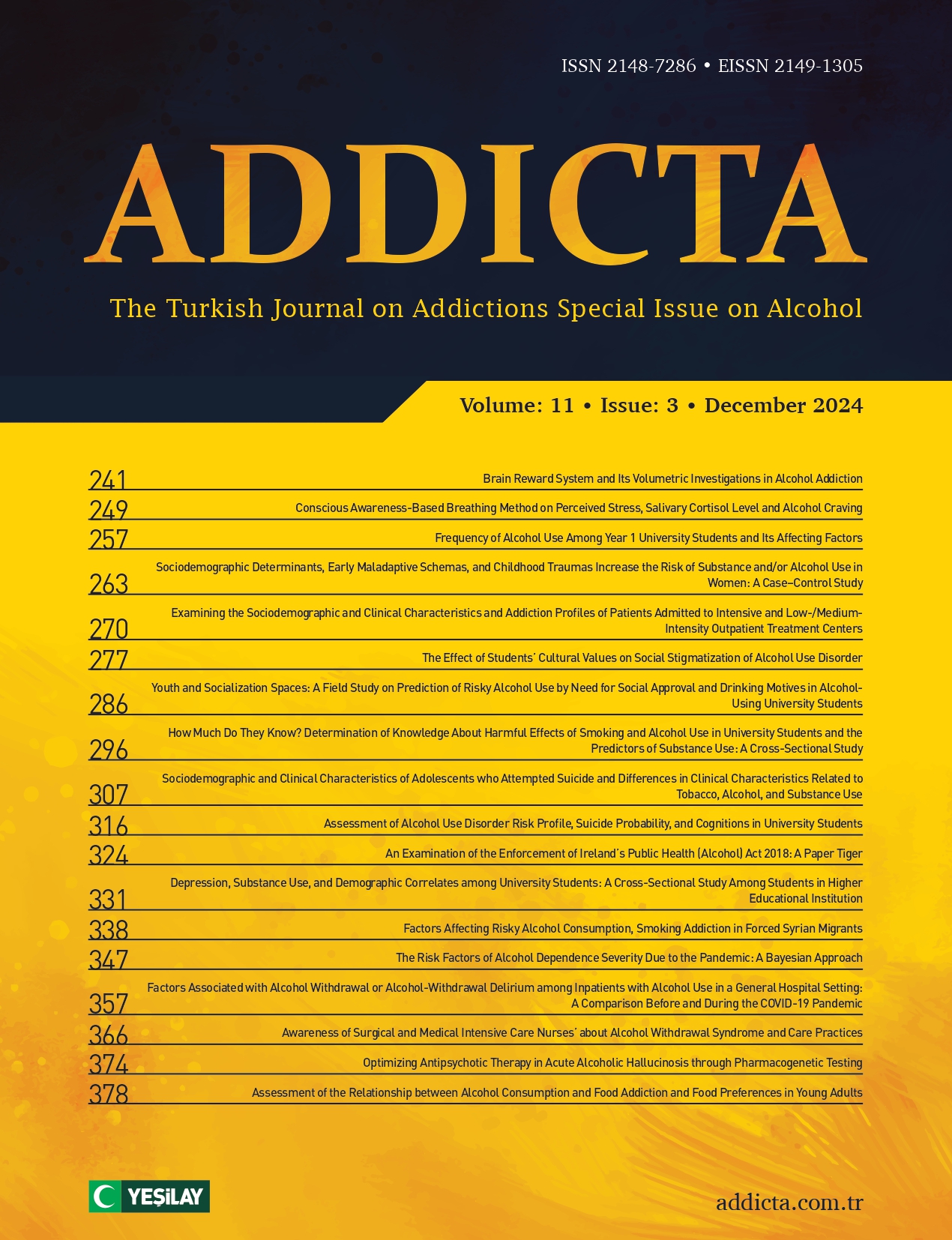Abstract
The purpose of this study is to investigate the post-migration factors that influence the cigarette addiction or risky alcohol consumption among forced migrants. In this context, daily stressors, general anxiety, perception of general health, perception of social support, intergroup contact and acculturation were examined as predictors cigarette addiction or risky alcohol consumption. For the purposes of the study, participants were informed about the Consent Form, Demographic Information Form, Daily Stressors Scale, Generalized Anxiety Disorder Assessment, World Health Survey, Social Support Scale, Scales for Adaptation, Cultural Distance Scale, and Acculturation Orientation Scale, Intergroup Contact Quantity Scale, Valenced Positive Contact Scale, Valanced Negative Contact Scale, Fagerstrom Test for Nicotine Dependence, and The Alcohol Use Disorders Identification Scale were applied. As a result of the Hierarchical Regression analysis, it was found that the general anxiety level predicted cigarette addiction. According to the Hierarchical Regression analysis on risky alcohol consumption, psychological cohesion and socio-cultural cohesion, which are subdimensions of acculturation, were found to predict risky alcohol consumption. It is thought that this study, which examines the addictive behaviors of refugees experiencing forced migration along with psychological and social factors beyond the psychology of the refugees, will contribute to the literature.
Cite this article as: Demircan, D., & Guler, M. (2024). Factors affecting risky alcohol consumption, smoking addiction in forced migrants. Addicta: The Turkish Journal on Addictions, Published online November 8, 2024. doi:10.5152/ADDICTA.2024.23114.

.jpg)

.png)
.png)
